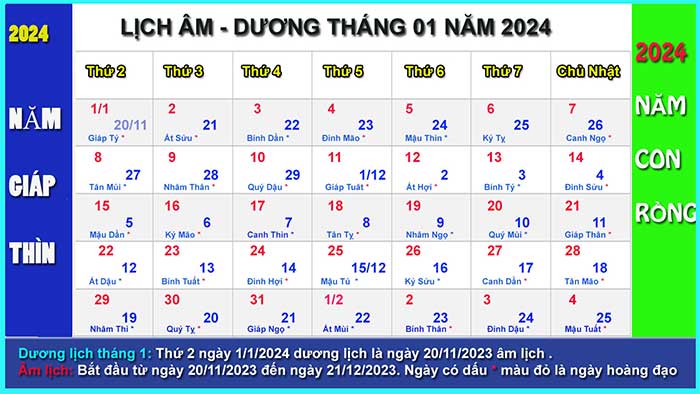As everyone knows, the lunar calendar is an important part of the traditional culture of East Asian countries. In Vietnam, we use both the lunar and solar calendars concurrently. So what are the differences between the lunar and solar calendars, and why is the lunar calendar important in our country? Let’s explore this together.
What is the Lunar Calendar? Differences Between Lunar and Solar Calendars
The lunar calendar (also known as the lunar calendar or the original calendar) is a system of timekeeping used in many cultures across Asian countries such as China, Vietnam, South Korea, Japan, and more. The lunar calendar is calculated based on the moon’s cycles around the Earth and other astronomical factors to measure time and determine holidays, auspicious days, and significant events throughout the year.

The lunar calendar is a system of timekeeping used in many cultures across Asian countries.
The main differences between the lunar and solar calendars are:
- Time Measurement Basis: The lunar calendar measures time according to the moon’s cycle around the Earth, while the solar calendar is based on the Earth’s orbit around the sun.
- Number of Days in a Year: The lunar calendar has either 354 or 355 days in a year, whereas the solar calendar has 365 or 366 days.
- Number of Days in a Month: The solar calendar typically has 30-31 days, and 28-29 days in February. In contrast, the lunar calendar has 29 days (in a short month) and 30 days (in a long month).
- Auspicious and Inauspicious Days: The solar calendar does not distinguish between auspicious and inauspicious days. The lunar calendar, however, categorizes days based on astronomical factors and traditional beliefs.
- Holidays: Both calendars feature holidays throughout the year. In Vietnam, the holidays based on the lunar calendar are highly regarded and represent a unique cultural identity of the nation.
Currently, Vietnam uses both the lunar and solar calendars simultaneously. The lunar calendar supports cultural traditions, while the solar calendar is utilized for daily life, work, and study.
Why is the Lunar Calendar Important in Vietnamese Culture?
While the solar calendar serves merely as a tool for timekeeping, the lunar calendar plays a significant role in our culture for several reasons:
- The lunar calendar helps determine traditional holidays, such as Tet Nguyen Dan (Lunar New Year), Tet Trung Thu (Mid-Autumn Festival), and many other celebrations throughout the year.
- It makes it easy to identify auspicious and inauspicious days for carrying out traditional activities, such as housewarming, weddings, and business openings.
- It aids in determining personal age trends, calculating, and selecting compatible ages.
- It allows tracking of yearly cycles, including the moon’s changes, which relate to weather changes affecting agriculture.
As of now, the lunar calendar is still regarded as the primary calendar in our country. Although many young people work daily with the solar calendar, they frequently reference the lunar calendar to anticipate significant holidays throughout the year.





















































